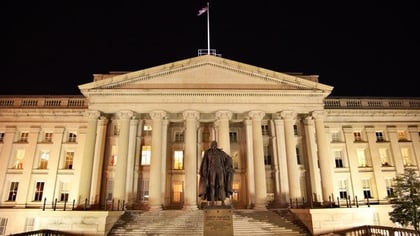Deregulation in financial stability oversight prompted lawmakers Wednesday to question if the system is strong enough to catch problems before they spread and cause contagion now that the systemically important financial institution designation has lost its teeth.
At a Wednesday hearing before the House Financial Services Subcommittee on Consumer Protection and Financial Institutions, lawmakers also expressed concern about the winnowing of staff at the Office of Financial Research, which, like the Financial Stability Oversight Council, is under the U.S. Treasury Department purview.
The 2010 Dodd-Frank Act, which created the multi-agency FSOC, paved the way for nonbanks like insurers and asset managers to be designated as SIFIs.
The three insurers and single finance company that FSOC named as nonbank SIFIs have all been set loose from their designations by the deregulatory approach of both the federal court system and the Trump administration.
FSOC is now pursuing an activities-based approach to systemic risk, OFR Director Dino Falaschetti testified.
Rep. Bill Posey, R-Fla., probed Falaschetti to explain how the current approach would have caught AIG before it wrought havoc on the financial system in 2008 during the financial crisis.
“How would they identify a derivative as being dangerous?” Posey pressed Falaschetti.
Falaschetti pointed to a list of proposed guidance that included looking at the complexity of a product.
OFR, which has served as a back bench for data research for FSOC and Treasury, has suffered a whopping 60% or more downsizing from more than 255 employees in earlier years to about 100 employees in the current administration, a source of concern for some lawmakers.
Falaschetti did respond that the office was “vigorously recruiting.”
However, Lael Brainard, a member of the Federal Reserve Board of Governors, let Posey know that the Fed, as the consolidated supervisor of any nonbank SIFIs, would have caught the problems at AIG under the now out-of-favor nonbank SIFI designation.
“For institutions with a lot of derivatives exposures that were not well risk-managed and that the company was not prepared to make good on in periods of stress, that kind of designation authority would have shown the full scope of activity to the supervisors and put in place resolution planning [and] liquidity requirements [and] capital buffers against the full scope of activities as opposed to the more narrow pieces that were under regulation,” Brainard testified.









 September 27, 2019 at 02:41 PM
September 27, 2019 at 02:41 PM











